CIA Sponsored Terror, Civil Liberties, Criminalizing Dissent, Gaza, Guantanamo, Habeas Corpus, Human Rights, Military Tribunal, NSA Spying, Political Prisoner, Prosecution of the Bush Administration, Supreme Court, Surveillance, Targeting Muslims, Torture, War Resister
Podcast: Play in new window | Download
Updates:
- Michael Ratner: Moazzam Begg Freed After Terrorism Charges Dropped
- Michael Ratner: 149 Inmates In Guantanamo Bay Prison – 79 Approved For Transfer
——-
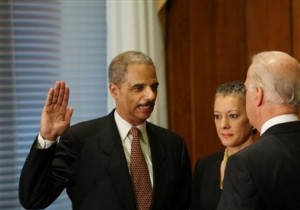

U.S. Attorney General Eric Holder Evaluation
Michael Ratner and Heidi Boghosian draw a balance sheet on the record of U.S. Attorney General Eric Holder.
- Holder approved drone killing of American citizen al-Awlaki without due process.
- Holder failed to prosecute any of the Bush Administration officials who were openly admitted torturers.
- Holder abrogated the responsibility in holding corporate criminals accountable. Wall Street.
- Holder settled with HSBC for 2 billion, the bank was caught laundering money for drug cartels yet no prosecution.
- With-Holder prosecuted whistleblowers, Chelsea Manning, Julian Assange, Edward Snowden, James Risen, Jeremy Hammond, Fox News Reporter,
Law and Disorder Co-host Attorney Heidi Boghosian, executive director of the A.J. Muste Memorial Institute, a nonprofit charitable foundation providing support to the nonviolent movement for social change. Before that she was executive director of the National Lawyers Guild. She is author of the book “Spying on Democracy: Government Surveillance, Corporate Power, and Public Resistance” (City Lights, 2013) as well as several reports on policing and the First Amendment.
Law and Disorder Co-host Attorney Michael Ratner, President Emeritus of the Center for Constitutional Rights (CCR), a non-profit human rights litigation organization based in New York City and president of the European Center for Constitutional and Human Rights (ECCHR) based in Berlin. Ratner and CCR are currently the attorneys in the United States for publishers Julian Assange and Wikileaks. He was co-counsel in representing the Guantanamo Bay detainees in the United States Supreme Court, where, in June 2004, the court decided his clients have the right to test the legality of their detentions in court. Ratner is also a past president of the National Lawyers Guild and the author of numerous books and articles, including the books Who Killed Che? How the CIA Got Away With Murder, The Trial of Donald Rumsfeld: A Prosecution by Book, Against War with Iraq and Guantanamo: What the World Should Know, as well as a textbook on international human rights.
——-
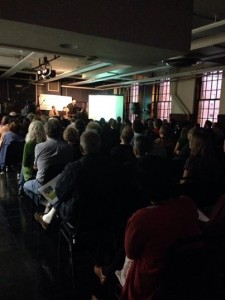

Academic Freedom & Political Dissent: A Conversation with Katherine Franke and the Community
We continue to report on Professor Steven Salaita’s case and the concerns regarding established principles of academic freedom. We hear a presentation by Katherine Franke, Professor of Law at Columbia University. Listeners may recall that Professor Salaita was unhired from the American Indian Studies program at the University of Illinois at Urbana-Champaign because of his statements on social media criticizing Israel’s conduct of military operations in Gaza. We reported last month on Law and Disorder that scholars from law schools around the country came out with a letter condemning the decision of the University of Illinois to unhire Professor Salaita. Katherine Franke discussed Salaita’s case at the University of Illinois at Urbana-Champaign late last month.
Speaker – Katherine Franke, Isidor and Seville Sulzbacher Professor of Law; Director, Center for Gender and Sexuality Law at Columbia University. She was awarded a 2011 Guggenheim Fellowship, and is among the nation’s leading scholars in the area of feminism, sexuality and race. In addition to her scholarly writing on sexual harassment, gender equality, sexual rights, and racial history, she writes regularly for a more popular audience in the Gender and Sexuality Law Blog. Franke is also on the Executive Committee for Columbia’s Institute for Research on Women and Gender, and the Center for Palestine Studies and teaches at a medium security women’s prison in Manhattan. Her legal career began as a civil rights lawyer, first specializing in HIV discrimination cases and then race and sex cases more generally. In the last 25 years she has authored briefs in cases addressing HIV discrimination, forced sterilization, same-sex sexual harassment, gender stereotyping, and transgender discrimination in the Supreme Court and other lower courts.
—————————————————————-

Please help support Law and Disorder, the show is now a sponsored project of Fractured Atlas, a non-profit arts service organization. Contributions for the charitable purposes of Law and Disorder must be made payable to Fractured Atlas only and are tax-deductible to the extent permitted by law.
Civil Liberties, Criminalizing Dissent, Gaza, Human Rights, Iraq War, Political Prisoner, Surveillance, Targeting Muslims, Torture
Podcast: Play in new window | Download

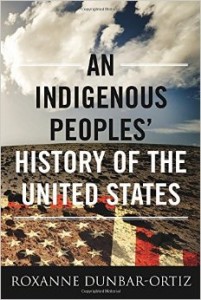
An Indigenous Peoples’ History of the United States
In the United States today, there are more than 500 federally recognized indigenous communities and nations comprising nearly three million people. These are the descendants of the 15 million people who once inhabited this land and are the subject of the latest book by Roxanne Dunbar-Ortiz. In An Indigenous Peoples’ History of the United States, Dunbar-Ortiz challenges the founding myth of the United States and shows how policy against the indigenous peoples was genocidal and imperialist—designed to crush the original inhabitants. Spanning more than 300 years, this classic bottom-up history significantly reframes how we view our past. Told from the viewpoint of the indigenous, it reveals how Native Americans, for centuries, actively resisted expansion of the U.S. empire.
Roxanne Dunbar-Ortiz:
- It’s absolutely necessary to know this history of settler colonialism and how it effects consciousness today of U.S. people and in the world because everyone is convinced of this myth of the United States and somehow its always going off the path of this destiny that has never been true in the first place.
- It’s like a fairy tale except its extremely deadly and dangerous.
- Other countries have romantic myths as their form of nationalism but they don’t control the world with this ideology.
- The myth is that it was a birth of settler democracy but we know from apartheid South Africa, we know from colonialism, particularly settler colonialism such as Israel.
- There are so many parallels with Israel because the Puritans and this became embedded in all settlers, had this idea of the new Jerusalem of Zion. They used that terminology.
- That God had given them this land to settle, it wasn’t just a right it was a responsibility to destiny, to the world.
- This made the native farmer and fisherman, ordinary people like other people in the world into savages and monsters, sort of like the Israelis to do the Palestinians today.
- Throughout the book I have a theme of the militarism and the counterinsurgency that attacks civilians and a food fight they call it, burns the food, supplies, the crops, burns the houses of the people in their towns, creates refugees. This then becomes the pattern.
- Every generation there is this Indian war. Vietnam looked like an Indian war, even the language they use – indian country for enemy territory, all of the weapons they name after native people.
- This is not how we think of the United States, supposedly a civilian country, the military is always under control of civilians but that civilian president is commander and chief of the armed forces.
- There’s also a theory, the Bering Strait the one entrance to the whole continent, which is absurd because all of the people on the coast were great seafaring people.
- A part of European imperialism say as the beginning of everything that it connected people up. Actually what it did was separate people each other and their tradition.
- My specialization is the southwest and central Mexico, Central America. I knew there were complex trade routes and roads all over the place, irrigation canals, how they developed agriculture.
- The first chapter, Follow the Corn, I did just that. I followed out of Mexico, the dispersion of corn agriculture all the way to Tierra Del Fuego to the sub Arctic and coast to coast.
- What you find in the Americas is when they get to the point of abusing the environment and become dictatorial, there tends to be revolts to overthrow, that was happening when Cortez came to Mexico.
- The Quetzalcoatl cult that took over the Aztec government became abusive and was doing slave raiding. Had done a wonderful job of dispersing trade routes. Cortez simply allied with the rebels and overthrew the central government.
- Course they couldn’t know his intentions of simply wiping out their civilization.
- When British colonialism came to North America with these peculiar characteristics of the puritan ideology settling in. With 2 centuries of settler colonialism they developed this idea of ownership.
- It went from owning human beings to the idea of owning the land.
- George Washington was a surveyor and you have to ask why was such a super wealthy – a lowly surveyor?
- Surveyors got to choose the best land, and got to mark it up. They had already developed this idea of a Platte, creating territories that would then become states once they had a majority settler population.
- That’s why it took so long for Oklahoma, Oklahoma was the 47th state, New Mexico, Arizona, these places that had a majority native population.
- It was rough being native in the United States, it still is. I grew up in Canadian county Oklahoma, my dad sharecropped, and was a tenant farmer throughout that area until the depression wiped it out.
- The people went to California as refugees.
- I’m cautious about the identity because native nationalism Cherokee or Onondaga or Shawnee or Creek Muskogee
- There was an instance in 1917, I think its one of the most important moments in US history and hardly anyone knows about it. Jack Womack and I had written about it Monthly Review, it was called the Green Corn Rebellion.
- That is the main demand, land base, nationhood, the ability to prosper and exist as people, not just as individuals being assimilated out, that’s another form of genocide.
Guest – Roxanne Dunbar-Ortiz, grew up in rural Oklahoma, the daughter of a farmer and half-Indian mother. She has been active in the American Indian Movement for more than four decades and is known for her lifelong commitment to national and international social justice issues. After receiving her PhD in history at the University of California at Los Angeles, she taught in the newly established Native American Studies Program at California State University and helped found the departments of Ethnic Studies and Women’s Studies. Her 1977 book The Great Sioux Nation was the fundamental document at the first international conference on Indians in the Americas, held at the United Nations’ headquarters in Geneva. She is the author or editor of seven books.
———
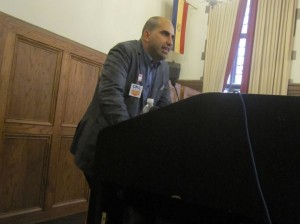
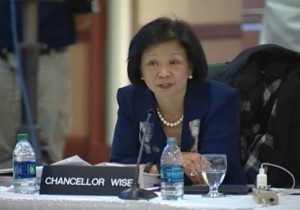
Academic Freedom Case: Professor Steven Salaita
Last Thursday the University of Illinois at Urbana-Champaign Board of Trustees rejected Professor Steven Salaita’s candidacy for a tenured faculty appointment to the American Indian studies program. Initially we reported here on Law and Disorder that Professor Salaita was essentially dehired from the American Indian Studies program at the University of Illinois at Urbana-Champaign because of his statements on social media criticizing Israel’s conduct of military operations in Gaza. Emails within the University revealed under Freedom of Information Act Requests show that it was outside pressure from donors that influenced the University of Illinois Chancellor’s decision to dehire Salaita.
Professor Steven Salaita:
- I received the job offer at the end of September 2013, the first offer was for me to begin on June 2014 but because of my obligations to Virgina Tech and short time for moving we pushed it back to mid August.
- Everything was good to go, we set up movers, my classes were ready to teach they had been assigned to me. I ordered my textbooks, on August 2, I received a letter from the chancellor Phyllis Wise, telling me the termination was going to be withdrawn, so it left me scrambling for what to do, because I already resigned my position at Virginia Tech.
- So all of a sudden I didn’t have a job, at Illinois or Virginia Tech.
- Publicly released documents indicate that donor pressure played a large role in it.
- There’s been some consternation about my tweets about Operation Protective Edge, that’s Israel’s recent invasion of the Gaza Strip and I think that had a lot to do with the donor pressure.
- I think the university is pressing this idea of incivility in social media.
- I think one of the saddest parts of the whole affair is that I hadn’t had the opportunity to join them and become their colleague and work with them (Professors at the American Indian Studies Department) and they’ve been terrific throughout this entire affair.
- Academic hiring happens at the level of faculty, it happens at the level of department and search committees within departments will choose the hire, sometimes the entire department has to sign off on it.
- Then it gets kicked up the dean, then it will get kicked up to the provost or chancellor for their approval, that’s what we call democratic governance on campus.
- It’s kind of an allegory of the position of American Indian nations in the United States and Canada. They’re seen as not being able to make their own autonomous decisions. They’re not allowed to articulate their own practices of sovereignty without the oversight of authorities above them.
- The discourse they used in firing me is remarkable. To describe somebody who has been hired by an American Indian Studies Department as uncivil draws on hundreds of years of colonial discourse that I find shocking.
- It’s an allegory of history and politics that exist in microcosmic form within the framework of the University of Illinois.
- In this case civility means acquiescence to power, and incivility equates to dissent.
- In lots of ways my case has become something of an avatar, a flashpoint for people’s grievances.
- I could really easily be identified with BDS and I think within the past year, 2 things have happened that have caused Zionists to step up their game around this issue. One is the string of boycott resolutions that have been ratified by scholarly organizations by labor unions, by civil rights groups, by churches.
- I think the response to it is not engage on the issues, not to have conversations or debates about the issues but to shut down our side altogether. They don’t want to have debates, they want a silence.
- They don’t want to engage in conversation they want the discussion to be unilateral.
- Support Steven Salaita
Guest – Professor Steven Salaita, former associate professor of English at Virginia Tech. He is the author of six books and writes frequently about Arab Americans, Palestine, Indigenous Peoples, and decolonization. His current book project is entitled Images of Arabs and Muslims in the Age of Obama.Steven grew up in Bluefield, Virginia, to a mother from Nicaragua (by way of Palestine) and a father from Madaba, Jordan. Books by Salaita
—————————————————————————————

Please help support Law and Disorder, the show is now a sponsored project of Fractured Atlas, a non-profit arts service organization. Contributions for the charitable purposes of Law and Disorder must be made payable to Fractured Atlas only and are tax-deductible to the extent permitted by law.
Afghanistan War, Civil Liberties, Climate Change, Criminalizing Dissent, FBI Intrusion, Gaza, Human Rights, Iraq Veterans, Iraq War, Targeting Muslims, Torture, War Resister
Podcast: Play in new window | Download
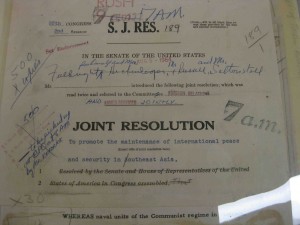
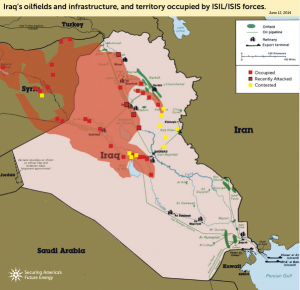
The Legality of War Powers: Michael Ratner
Law and Disorder co-host Michael Ratner explains war powers in the United States and questions the legality of President Barack Obama decision to launch attacks against the Islamic State using the 2001 Authorization To Use Military Force. Michael Ratner and Jules Lobel with the Center for Constitutional Rights have brought a number of cases challenging the decision to go to war including Vietnam, El Salvador and Grenada
Attorney Michael Ratner:
- I’ve spent as a number of us had a lot of our lives trying to restrain U.S. war powers. The U.S. particularly the president or the Congress together going to war around the world.
- It’s been a task that has been singularly unsuccessful, starting with Vietnam where we brought case after case. Only at the very end of the war really did Congress finally act to restrict the president after there were secret wars carried out in Cambodia, in Laos, not just Vietnam.
- Right now the president hasn’t asked for any authority from Congress to either bomb targets in Iraq that he claims are Islamic state targets or presumable if they begun it bombing in Syria, again targets he claims that are Islamic state targets. He’s not asked for any authority.
- He has of course had to use some funding that Congress I think will approve if he asks for more. That is not considered giving authority by Congress, just because they fund a war.
- Coming out of Vietnam, Congress did sort of a mea culpa. They said well, the president dragged us into this war, we passed this Gulf of Tonkin Resolution which was this open ended resolution that said the president could do what ever he wanted in Vietnam. He kept fighting the war based on this broad authorization that Congress gave him over a false incident. . .
- The Gulf of Tonkin Resolution you could liken to the authority Congress gave the president to go to war in Afghanistan called the Authorization to Use Military Force.
- (Still back to Vietnam) So Congress passes what’s called The War Powers Resolution. Congress said to itself, we don’t want to be in the situation like Vietnam again.
- The president, yes is required to go to Congress before he can go to war with any country. The framers were very clear, we don’t want a president making war on his own.
- You get to Vietnam and Congress says we’re going to make a special statute. You still need a declaration of war or a special passage by Congress of a statute authorizing war before you can make war. But in just in case the president goes in to a country without getting a declaration from us or a statute allowing it we’re going to say he can only stay in that country for 60 days.
- After 60 days he’s required to pull out all troops from that country.
- There’s never been any compliance with the War Powers Resolution in the history of our country – where after the 60 day clock, the president has pulled out the troops.
- I’ve litigated that with El Salvador when the U.S. sent in “advisors” into El Salvador, we’ve litigated it in Grenada and other places.
- We litigate these on 3 bases. Non compliance of the War Powers Resolution, Secondly non-compliance with the U.S. Constitution which is the Congress has to declare war not the president, and third non-compliance with the U.N. Charter which says there can be no use of force by any member state, unless its self defense or the UN Security Council approves it.
- The problem here isn’t really a problem of law. The problem here is the problem of having a hegemonic imperialist country that dominates the world through force.
- So that turns us back to where we are right now.
- Obama has two justifications – one is the original grant of authority to bomb and go and use force and U.S. troops in Afghanistan called the Authorization to Use Military Force passed shortly after 911 in 2001 which basically said the president could use force to go after the perpetrators of 911, those who harbored them or those who aided and abetted them.
- In the case of the Islamic State they’re at war with has been denounced by al-Qaeda, so they’re certainly not part of a 911 conspiracy at all.
- There’s no question that he’s illegally bombing the Islamic State in Iraq, illegally bombing them to the extent he is in Syria.
Law and Disorder Co-host Attorney Michael Ratner, President Emeritus of the Center for Constitutional Rights (CCR), a non-profit human rights litigation organization based in New York City and president of the European Center for Constitutional and Human Rights (ECCHR) based in Berlin. Ratner and CCR are currently the attorneys in the United States for publishers Julian Assange and Wikileaks. He was co-counsel in representing the Guantanamo Bay detainees in the United States Supreme Court, where, in June 2004, the court decided his clients have the right to test the legality of their detentions in court. Ratner is also a past president of the National Lawyers Guild and the author of numerous books and articles, including the books Who Killed Che? How the CIA Got Away With Murder, The Trial of Donald Rumsfeld: A Prosecution by Book, Against War with Iraq and Guantanamo: What the World Should Know, as well as a textbook on international human rights.
———
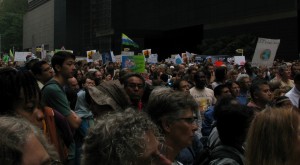
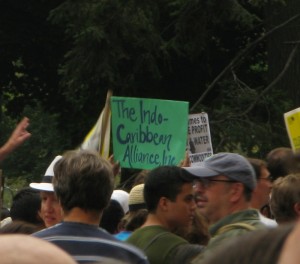
The People’s Climate March and the United Nations Climate Summit
We hear the voices from the climate march held in New York City, a large-scale activist event to advocate global action against climate change. The march winded through the streets of New York Sunday, September 21, 2014. Initially called by 350.org, the environmental organization founded by writer/activist Bill McKibben, the march has been endorsed by nearly 400 organizations, including many international and national unions, churches, schools and community and environmental justice organizations. The action is intended to coincide with the UN Climate Summit this week as U.N. Secretary General Ban Ki-moon invited leaders of government, the private sector and civil society to arrive at a long term solution for climate change.
——–
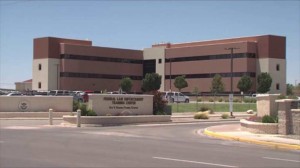
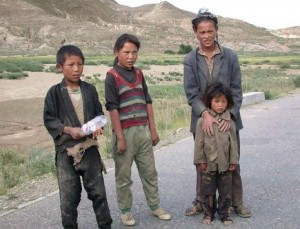
National Immigration Project
Last month the National Immigration Project of the National Lawyers Guild and several other groups sued the federal government to challenge its new and unlawful “fast-track” expedited removal policies that are being used against mothers and children detained in Artesia, New Mexico. Artesia is a remote detention center hundreds of miles from the nearest city. Lawyers with the NIP have collected evidence showing the government disregarding and pushing mothers and children through a deportation process making it nearly impossible for them to consult attorneys, prepare claims for asylum or any defenses to deportation. A class action lawsuit was brought by the Northwest Immigration Rights Project challenging the treatment of unaccompanied children in California with the average of 10 years old.
Paromita Shah:
- Starting in early April the government began to see a surge in arrivals of families – of mothers and children and sometimes children who came by themselves.
- Predominantly these children and families come from countries Honduras, Guatemala and El Salvador.
- They fled their home countries for a variety of reasons, mostly to escape what was horrific atrocities they experienced.
- They went to other countries as well, since other countries have seen a 700 percent increase in asylum claims. Costa Rica and Bolivia.
- The surge is not new. The surge actually began about 5 years ago when people were reporting an exponential increase of children coming across the border and no one knew what to do about it.
- From the stories we’ve heard from many of our members they are fleeing horrific atrocities and came to the United States to seek refuge here.
- The National Immigration Project of the National Lawyers Guild and the ACLU and a number of organizations sued the federal government to challenge its policies that denied a fair deportation process to the families and the children who fled this extreme violence.
- The primary focus of our argument is that these people weren’t given a chance to apply for asylum.
- We are violating our laws that relate to asylum, that relate to the convention against torture. These are laws not only in the United States but also international treaties that we’ve signed onto.
- If you fled a country that abused you and injured you, you would come to the United States border. At that point our laws set up a process called expedited removal. It’s a two stage process.
- The first step includes an interview with asylum officer to evaluate if you have a credible fear. When I say border that’s at any point of entry in the United States.
- Anywhere within 100 miles of the border (U.S.) because that’s how we define the border.
- Two thirds of the population of the United States lives within 100 miles of the border.
- Artesia New Mexico is a federal holding cell for the 672 people who are now detained there.
- If you’re a child that doesn’t have an adult with them you’re supposed to be treated differently under this process. They are not as a practice supposed to be put into expedited removal because of their age. You will have a chance to apply for asylum ( which is incredibly difficult) because you apply without an attorney.
- There are children in New Jersey, Washington state, Texas, L.A., and Florida.
- Children can’t always talk if they were raped or recruited into a gang or brutalized by a gang.
- J.E.F.M. v. Holder
- The irony of this whole process is that Artesia is in New Mexico. The immigration court that’s holding these hearings around Artesia is in Arlington, Virginia.
- They’re conducting these hearings by video.
Guest – Paromita Shah, associate Director of the National Immigration Project. She specializes in immigration detention and enforcement. She is the contributing author and co-presenter of the Deportation 101 curriculum.
———————————————————-
CIA Sponsored Terror, Civil Liberties, Gaza, Habeas Corpus, Human Rights, Military Tribunal, NSA Spying, Political Prisoner, Surveillance, Targeting Muslims, Torture, Truth to Power, War Resister
Podcast: Play in new window | Download
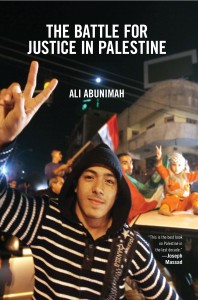
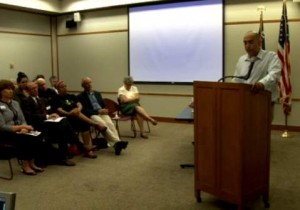
Ali Abunimah On Gaza, His New Book The Battle For Justice in Palestine and Censorship
ElectronicIntifada co-founder Ali Abunimah is the author of new book The Battle For Justice in Palestine. He shares with hosts the recent news of what’s happening in Gaza, the resistance around the world, as well as on campus and in the United States. Ali was scheduled to speak at the Evanston Public Library in early August. The library later sent an email telling him he couldn’t be allowed to speak without an Israeli speaker to ensure balance. Neighbors for Peace an organization of antiwar activists based in the Chicago suburb of Evanston, Illinois who initially brought Abunimah to speak suspected the library’s director was pressured to censor the event. The event was canceled the following day and after some activism and demonstration, the presentation was rescheduled. Ali spoke about his recent book The Battle For Justice In Palestine, the event was packed. Last year at Brooklyn College a similar controversy erupted when Palestinian BDS advocate Omar Barghouti and University of California Berkeley philosopher and BDS supporter Judith Butler we’re scheduled to speak.
Ali Abunimah:
- The situation has gotten considerably worse (in Gaza) over the past year because of the coup in Egypt.
- The current regime in Egypt is very closely aligned with Israel. They’ve made it just impossible for 1.8 million people to live in Gaza.
- The demands from Palestinian civil society is lift the siege, open the crossing, allow farmers to farm, allow fishermen to fish, allow factories to function, allow travelers to travel, students to go to their universities, patients to reach their hospitals, allow medicines to come in, allow books to come in.
- You mentioned my book The Battle for Justice in Palestine. Well, there’s no way to get that book into Gaza.
- It’s also a siege on human contact, culture, education and nourishment. They killed now more than 2000 people in Gaza which is 1 out of every 1000 residents in Gaza.
- Entire families have been wiped out, nobody feels safe. This massacre Israel thought would break people’s will and get them to accept and go back under siege.
- But Israel won’t (lift the siege) it’s a matter of pride for them, it’s a matter of colonial control.
- The most frightening statement about where they’re (Israel) going was made more than 10 years ago. I wrote about this recently in an article called The Gaza Massacre Is The Price of Living In A Jewish State.
- At that time you hearing fantasy about Gaza becoming the new Singapore on the Mediterranean. The Israelis were saying to themselves that Gaza was going to become a giant holding pen for human beings who are not Jewish.
- If we’re going to wait for government to do the right thing or the UN to get its act together, then we’re doomed.
- Despite the multiple levels of complicity by this government in this country, and governments in Europe and the Arab world, something is happening.
- We’re not starting from zero we have a really important and sustained Boycott Divestment and Sanctions movement.
- They’re firing artillery, mortar shells that are designed to be indiscriminate into populated areas of Gaza with the intended consequence of causing widespread destruction.
- We have to go after the weapons manufacturer, we have to after the people who approve these sales from around the world and its because of public pressure that the UK announced last week that they will suspend armed exports to Israel if significant hostilities resume.
- Well now they have resumed, let’s see what they do.
- Look what’s happening just this week, an Israeli cargo ship was prevented from unloading for 4 days in Oakland because solidarity activists and unionized port workers have been working together to prevent that.
- Israel can only maintain its dominance over Palestinians through brute force and use of violence against Palestinians there, and through attempts to suppress debate, suppress political action on behalf of Palestinians in the United States and around the world.
- Mainstream media is more closed to Palestinian voices than what I’ve seen in 20 years. I used to get on CNN, I used to get on MSNBC.
- The librarian let me know that the event was canceled until they could get a pro-Israel speaker.
- There was such an uproar, it was amazing. They did a U-turn pretty quickly.
- As Israel and its apologists lobbies lose control of the narrative, lose control of the politics in this country, there is a more blatant resort to outright repression such as what is going on now at the University of Illinois and other institutions around the country.
- In that chapter I site an organization called the David Project, which is a Zionist group that’s been working for ten years attacking and targeting professors.
Guest – Ali Abunimah, a Palestinian American journalist who has been described as “the leading American proponent of a one-state solution to the Israeli-Palestinian conflict. A resident of Chicago who contributes regularly to such publications as The Chicago Tribune and The Los Angeles Times, he has also served as the Vice-President on the Board of Directors of the Arab American Action Network, is a fellow at the Palestine Center, and is co-founder of The Electronic Intifada.
———
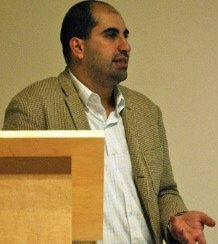
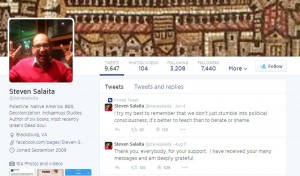
Top Legal Scholars Decry Chilling Effect of Dehiring Professor Steven Salaita
The University of Illinois has rescinded the job offer of the professor who wrote controversial social media posts about the war in Gaza. Professor Steven Salaita was essentially dehired from the American Indian Studies program at the University of Illinois at Urbana-Champaign because of his statements on social media criticizing Israel’s conduct of military operations in Gaza. This has raised serious concerns under established principles of academic freedom. Those principles are enshrined in Illinois law, in the U.S. Constitution, and in the written principles of the American Association of University Professors. Recently, scholars from law schools at Columbia, Cornell, Berkeley, Georgetown, and other universities have come out with a very strong letter condemning the decision of the University of Illinois to dehire Steven Salaita. Read letter here.
Professor Katherine Franke:
- Professor Salaita was made a tenured offer of appointment at the University of Illinois in their American Indian studies program last year. He accepted it and negotiated the terms of the offer. Then during the most recent assault on Gaza, he was active on twitter expressing his views on the Middle East and colonialism.
- The University of Illinois came under a tremendous amount of pressure to revoke the offer of employment to Professor Salaita.
- The offer wasn’t finalized, there’s usually a rubber stamp process where the department and the head of the university have to take appointment to the Board of Trustees.
- The chancellor of the university Phyllis Wise informed Professor Salaita that she would not be bringing his appointment to the Board of Trustees and was unwilling to finalize his appointment.
- He had already resigned his position at Virgina Tech and was getting ready to move. He’s a well known scholar, not only of American Indian studies but of colonialism more generally and has connected up the struggle for sovereignty and analysis of genocide and occupation in the United States to the struggles that the Palestinians have suffered in the Middle East.
- He certainly didn’t depart from views he expressed before but I think they, in the heat of the moment of this recent assault on Gaza, the university basically buckled and withdrew the offer, and he’s now without a job and an income.
- It’s because of his speech on the issue of war crimes that may have been committed by Israel in the assault on Gaza.
- His tweets have been rather even across the board I think in terms of criticizing the critics of Israel when they’ve overstepped but also criticizing Israel itself.
- He’s a fiery guy with strong opinions and rigorous academic critiques of colonialism and colonial violence.
- I thought it would be useful to add constitutional and legal analysis of the problem, situated historically in threats to free speech on campus. I drafted a letter for Constitutional law professors, not in which they would agree to boycott universities . . . more offering a constitutional analysis of retaliation against unpopular speech.
- The law in this area has been made by faculty and sometimes students.
- I brought it back to Urbana-Champaign and their own history of threats to free speech both during the McCarthy period when bills were introduced in Springfield to punish or purge people who had back then what they call Communist sympathies when working in public universities. In 1960, there was a professor in the biology department at Urbana-Champaign that had written and spoke about human sexuality and premarital sex, and had actually endorsed premarital sex.
- There are a couple of principles that are at stake here, one has to do with the state punishing any citizen for speaking on an unpopular topic and particularly punishing for the viewpoint they take.
- There’s another faculty member at the University of Illinois Kerry Nelson who has been a rather enthusiastic advocate of Israel’s right to attack Gaza. He said things that are quite inflammatory, he’s not been fired. He’s not been punished for the positions he’s taken on the Middle East.
- Viewpoint discrimination, that’s the first point. The second point is academic freedom. Universities are the primary bastion of protection. A domain where we protect the pursuit of unpopular ideas, controversial ideas, of ideas that might even be frightening.
- That is the commitment that we make as part of the academic endeavor. The point of that concept of academic freedom is that we don’t want to have a kind of orthodoxy or an official version of the truth.
- Dr. Wise comes out of a somewhat corporate background. She, I think is the poster woman if you will for the executive that is now leading universities and thinks of universities as a business.
- The presidents are making an economic calculation, that they can pay off someone like Salaita and satisfy their donors.
- We can’t just agree to do nothing which what a boycott is. In a way it’s the easiest thing to do.
- I would say I have a lot of faith in students.
Guest – Katherine Franke, Isidor and Seville Sulzbacher Professor of Law; Director, Center for Gender and Sexuality Law at Columbia University. She was awarded a 2011 Guggenheim Fellowship, and is among the nation’s leading scholars in the area of feminism, sexuality and race. In addition to her scholarly writing on sexual harassment, gender equality, sexual rights, and racial history, she writes regularly for a more popular audience in the Gender and Sexuality Law Blog. Franke is also on the Executive Committee for Columbia’s Institute for Research on Women and Gender, and the Center for Palestine Studies and teaches at a medium security women’s prison in Manhattan. Her legal career began as a civil rights lawyer, first specializing in HIV discrimination cases and then race and sex cases more generally. In the last 25 years she has authored briefs in cases addressing HIV discrimination, forced sterilization, same-sex sexual harassment, gender stereotyping, and transgender discrimination in the Supreme Court and other lower courts.
——
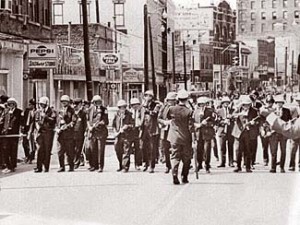
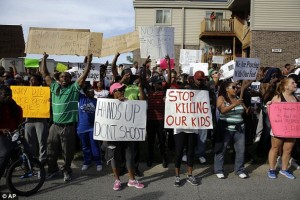
History Of Police Brutality And The Militarization of Local Law Enforcement
In the days since the uproar over the police shooting and killing of unarmed teenager Michael Brown, state and local law enforcement have been cycling through different approaches demonstrators in Ferguson, Missouri. They rolled out armored vehicles, while police in riot gear deployed tear gas, stun grenades and shotguns. Another decision permitted the Missouri State Highway Patrol to march with protestors. The National Guard was also ordered in. We examine the history and consequences of militarizing local law enforcement with Baruch College Civil Rights Professor Clarence Taylor.
Professor Clarence Taylor:
- We can’t talk about a post civil rights era. These issues are still with us today.
- It’s the people on the ground, who have gone through this, that are fed up.
- It’s not just arguing for a black face in a high place.
- There is no requirement of the police of Ferguson to live in that community.
- Having black officers would change the nature of the investigation.
- This is something that’s been argued going back in the 1930s and the 1940s and people were organizing against police brutality.
- We should not take our eyes off the racial component of this.
- Police brutality would still go on without the militarization of the police.
- You throw all these new toys at the police department and once you have a big enough hammer, everything looks like a nail.
- Diversifying police departments is very very important and emphasizing more community policing.
Guest – Professor Clarence Taylor, His research is in modern civil rights, black power movements and African American religion. He’s the author of many books including co-editor of Civil Rights Since 1787: A Reader in the Black Struggle. He’s currently writing a history of police brutality in New York City from the 1930s to the 1960s. In 1991, Clarence received his PhD in American history and began teaching at Le Moyne College in Syracuse, New York. He reworked his dissertation into a book, The Black Churches of Brooklyn from the 19th Century to the Civil Rights Era, and it was published by Columbia University Press in 1994. In 1996, Clarence became a member of the history department and the African-New World Studies Program at Florida International University.
————————————————————
CIA Sponsored Terror, Civil Liberties, Criminalizing Dissent, Gaza, Human Rights, Military Tribunal, Political Prisoner, Surveillance, Targeting Muslims, Torture, War Resister
Podcast: Play in new window | Download
Updates:
- Police Reform Urged By Anonymous
- Prof. Johanna Fernandez Brings Suit To Obtain NYPD Files On The Young Lords
- Heidi Boghosian Leaves National Lawyers Guild After 15 Years And Is Now Executive Director of the AJ Memorial Muste Institute
——
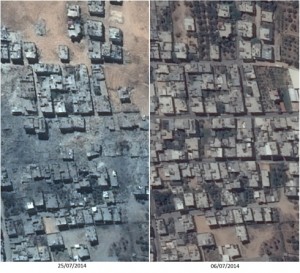

International Humanitarian Law and Israel’s War Crimes
Since the July 8th launch of intense bombing and the ground invasion by Israel against the occupied Palestinian territory’s Gaza Strip. There’s growing evidence that Israel’s leaders and commanders have committed the following crimes, war crimes, genocide and crimes against humanity as defined in the Rome statute of the International Criminal Court. U.S. military aid has aided and abetted and assisted the commission of these crimes by providing Israel with the military means to commit them. We discuss today violations of International Humanitarian Law with the Center for Constitutional Senior Staff Attorney Maria LaHood.
Attorney Maria LaHood:
- It has been reported that Israel has killed almost 2000 people in Gaza, including 460 children over the last month.
- A few thousand children alone, have been injured and they’ve displaced almost half a million people, that’s more than a quarter of the population of Gaza.
- That’s not to mention the widespread destruction of homes, schools, hospitals, mosques, UN shelters, critical infrastructure for civilian population and the power plant in Gaza.
- Then you think about the trauma that the population is subjected to, especially the children.
- What Israel has done, violates the laws of war, which is intended to protect civilians.
- There’s international humanitarian law that governs armed conflict. The basic principles are distinction and proportionality.
- Parties to a conflict have to distinguish between military objectives which can be attacked, and civilians and civilian property and infrastructure which can never be targeted under any circumstances.
- Grave and serious breaches of these laws are war crimes.
- Willful, indiscriminate and disproportionate attacks on civilians or civilian objects, like homes, the attacks on medical staff, and ambulances, and hospitals, which are specifically protected.
- There has also been the extensive destruction of property that hasn’t been justified by military necessity.
- The attacks and Israel’s closure on Gaza also are collective punishment. They punish people for offenses that they didn’t commit.
- All state parties to common Article 1 of the Geneva Convention are required, including the United States, are required to insure respect for the conventions under any circumstances.
- The United States has laws to prohibit funding and arms sales to foreign governments or specific units that are engaging in human rights violations.
- For example the Leahy Law bars the U.S. from funding foreign military units and individuals if there’s credible information that they took part in gross human rights violations.
- We found out recently, the U.S. doesn’t track which Israeli units are receiving U.S. military assistance.
- More than half of our foreign military funding goes to Israel.
- Even over the course of this latest onslaught on Gaza, the U.S. has sold munitions to Israel.
- As far as I’m concerned the U.S. is aiding and abetting Israel’s war crimes.
- I think the most important thing that’s going on right now is the global movement in support of Palestinian human rights.
- Look at the U.K. recently, 100 thousand turned out for a protest. A foreign officer minister resigned over the government’s policy. Now the government announced it will suspend military export licenses if the fighting resumed.
- Frankly, I’m not sure what could stop Israel while it has the U.S. government’s support.
- That’s our responsibility to change.
- It’s our right to talk about what Israel is doing, it’s our duty to do something about it.
- At every chance the U.S. government protects Israel.
- Its difficult in U.S. courts. It’s difficult when the U.S. government is protecting Israel in every way it can.
- It’s not just in U.S. courts, its in the U.N. It’s basically pressuring Abbas, not to ratify the Rome Statute of the International Criminal Court so that Israeli officials can’t be liable there.
- It pressures the Human Rights Council at every turn not to condemn Israel, not to have fact finding missions into Israel’s crimes, not to permit accountability for Israel.
- The United States has exercised its veto over 40 times to protect Israel from any accountability – (In UN Security Council)
- Basically the Rome Statute permits that states who aren’t parties can accept the court’s jurisdiction on an ad hoc basis.
- The ICC could accept jurisdiction of these crimes and should.
- There is a very serious argument that Israel’s mass killings of civilians in Gaza, repeated several times in recent years, in the context of Israel’s 47 years of occupation and absolute suffocation of Gaza over the last several years, and treatment of Palestinians more broadly, not to mention the horrible genocidal statements that top officials have been making in recent weeks, that that constitutes genocide.
- Genocide is a crime that the ICC has jurisdiction over.
- I began doing civil rights work as an attorney, and I was so troubled by what was going to be happening post 9-11, that I really wanted to get more involved in international human rights.
- I’m Lebanese-American, so I do feel impacted by what’s happening, but it is really truly I think my status as a responsible party as an American that makes me want to fight this.
Guest – Maria LaHood, Senior Staff Attorney at the Center for Constitutional Rights, which she joined in 2003. She specializes in international human rights litigation, seeking to hold government officials and corporations accountable for torture, extrajudicial killings, and war crimes abroad.
——-


International Peace Movement Gains Traction
There is a growing movement among Americans and Jewish Americans who are organizing for justice in Palestine. They’re calling for an end to the occupation, a restoration of the lands and homes of the Palestinians who were evicted years ago and an end to the siege in Gaza. Recent actions by a grassroots national organization called Jewish Voice for Peace have targeted companies that profit from the occupation, congressional leaders and Jewish institutions that rally behind Israel’s violence against civilians.
Donna Nevel:
- It’s part of a long pattern, and a long history of brutality against the Palestinian people and the people of Gaza and going right back to the Nakba and since then.
- The organizing that has been going on has been definitely stepping up. We’ve all seen the photos of protests around the world. London had a huge one, and South Africa and this country.
- Netanyahu recently held a press conference that was translated from Hebrew, that there cannot be a situation in which we relinquish security control of the territory west of the river Jordan.
- If we look at what happened in 1948, with the Nakba, what happened in 67 when Israel occupied more territory and displaced thousands upon thousands more Palestinians. Palestinians have been arrested more systematically, increased colonization of land, including during the supposed peace process.
- I’m one of many many people and groups that are doing organizing and as you know I’ve chosen to do my activism with a number of different groups.
- One of them Jewish Voice For Peace, Jews Say No and have also become part of a project, The Nakba Education Project, specifically because we think there is a great need in the American Jewish community and more broadly for the Nakba to be front and center which also addresses issues of the right of return.
- For our organizing, I think that the Palestinian led movement, for Boycott Divestment and Sanction at this particular moment becomes more important than ever as we’re protesting the brutality of the Israeli government.
- Jewish Voice For Peace – we hold ourselves accountable as a Jewish group that needs to do our work within the Jewish community and at the same time be a very respectful, responsible and responsive partner to the Palestinian led movement for BDS and for justice in Palestine.
- There are so many ways to connect.
- Now, you can be an Alternet, a Mondoweiss, an ElectronicIntifada, really wonderful places that speak the truth.
- There are organizations like the IMEU, The Institution For Middle East Understanding.
- JVP alone has had 50 thousand new people at least who asked to be on their mailing list. I’m pretty sure that’s happened with lots of groups across the country.
- The Israeli propaganda machine is so strong buttressed by the US government propaganda.
- Demonstrations have been huge . . . and the acts of civil disobedience.
- My background is that I grew up with deeply committed Jewish parents who taught me to stand up for justice whenever and wherever and to be proud of who I was and never think I was better than another human being.
- That was the framing through which I grew up. I thought I was going to connect to Israel and at first connected to what was called the Marxist-Zionist movement, which I understand is rather an oxymoron.
- I think what I hadn’t looked at was the Nakba. In 1989 I was involved with the Road to Peace Conference which was held at Columbia University between Knesset members and PLO officials and it was illegal for Israeli Knesset members to meet with PLO officials so Edward Said arranged for us to be at Columbia.
- I had been told there’s no group to talk with on the other side meaning the Palestinian side. Every group within Palestinian civil society and Palestinian political life showed up at the conference.
- There are increased BDS actions that are taking place. BDS Initiatives Grow Around The World
- BDSmovement.net / Endtheoccupation.org / JewishVoiceForPeace.org / Adalah.org / Contact – JewsSayNo@gmail.com /
Guest – Donna Nevel is a member of the board of Jewish Voice for Peace. She’s also a community psychologist and educator, coordinates the Participatory Action Research Center for Education Organizing (PARCEO) in partnership with the Educational Leadership Program at NYU Steinhardt, where she teaches PAR. She has been a long-time organizer for equity and racial justice in public education. She has been involved with Palestine/Israel peace and justice work since the 1970’s and is also part of groups to challenge Islamophobia and anti-Arab racism.
—————————————————–

Please help support Law and Disorder, the show is now a sponsored project of Fractured Atlas, a non-profit arts service organization. Contributions for the charitable purposes of Law and Disorder must be made payable to Fractured Atlas only and are tax-deductible to the extent permitted by law.
Afghanistan War, CIA Sponsored Terror, Civil Liberties, Criminalizing Dissent, FBI Intrusion, Gaza, Guantanamo, Habeas Corpus, Human Rights, Military Tribunal, NSA Spying, Political Prisoner, Surveillance, Targeting Muslims, Torture, War Resister
Podcast: Play in new window | Download
Updates:
- Attorney Michael Smith Remembers 69th Anniversary of U.S. Dropping A-Bombs On Japan
- Atomic Diplomacy: Hiroshima and Potsdam: The Use of the Atomic Bomb and the American Confrontation with Soviet Power
—–
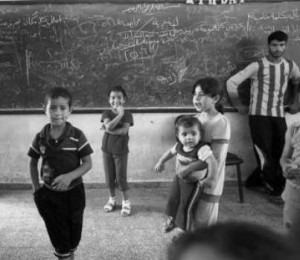
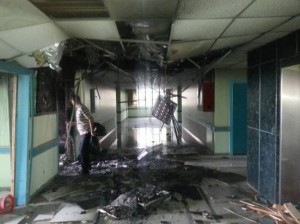
The Logic of Israeli Violence
Ongoing reports of Israel engaging in senseless cruel violence against Palestinian people in Gaza throughout Operation Protective Edge is not a random bombing campaign but a strategic war experiment in colonial management as Greg Shupak explains in his recent article The Logic of Israeli Violence. Shupak points out the attacks on civilians fleeing for shelter, the bombing of the medical infrastructure, fishing boats and wheat mills, killing Arab speaking journalists are in the larger plan of ethnicide and to render the Palestinian people dependent. His article reminds readers that there is a measured plan of attack to systematically erase the historic memory of the Palestinian society.
Greg Shupak:
- There’s good reason to believe according to some reporting by 97 Magazine and Max Blumenthal that the Israeli security forces knew quite perfectly well the teens were almost certainly killed as soon as they were abducted and yet they carried on this charade of pretending that they could be rescued in some way.
- Rocket fire from Hamas didn’t start until after Israel carried out strikes within Gaza, and carrying out various forms of killing Palestinian civilians and or people they described as militants.
- The rockets were a response to Israeli violence.
- Israeli propaganda has insinuated that these tunnels have in fact been used to kill Israeli civilians or that they may well be, but that simply has not happened.
- If the aim was to destroy tunnels, Egypt which is being ruled by a brutal regime, in its own right, was able to get rid of these tunnels without killing huge numbers of civilians.
- Israel’s aim vis a vis Gaza is to isolate Palestinians there from the outside world render them dependent on external benevolence and at the same time absolve Israel of responsibility toward them.
- The thesis I put forth about the current violence of Operation Protective Edge, is that one way Israel is attempting to achieve that goal, that goal of Jewish supremacy in historic Palestine with as much land as possible and as few Palestinians as possible is to aim to obliterate Palestinians as a people with the capacity to live independently in their homeland.
- The pattern of Israeli violence . . . is not only to kill and maim Palestinians but to impede their capacity to live autonomously in historic Palestine.
- It’s a settler colonial project.
- This is part of a longer term pattern. If you look at the work of Dr. Sarah Roy of Harvard she has documented extensively what she calls the deliberate de-development of the Gaza Strip economy. She has warned that Gazans are at risk for mass starvation.
- Five hospitals have been shut down. 24 health facilities have been damaged.
- We also that there’s been direct strikes on hospitals from Israeli fire.
- The ability of Palestinians to care for themselves has very much been undermined.
- Two thirds of Gaza’s wheat mills are inoperative, 3000 of its herders are in need of animal feed. We’ve seen fishermen attacked, we’ve seen attacks on agricultural sites, these are all part of those processes that Sarah Roy has talked about in the longer term.
- If religion is way for a cultural group to understand its identity then attacking the cultural institutions of that religion are ispo facto an attack on the people to have an identity.
- When you attack an educational institution you undermine the ability of a people to educate their young, to train them for future work, to train them to think critically, to develop artists, and inventors and so on.
- This to me is a very significant way for stifling a cultural groups independent existence.
- At its simplest, Israel can be seen as a giant military base for the United States.
Guest – Greg Shupak, a writer, activist and PhD candidate at the University of Guelph’s School of English and Theatre Studies. He teaches Media Studies at the University of Guelph, Ontario, Canada.
——–
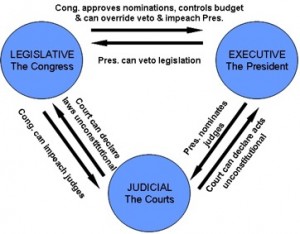
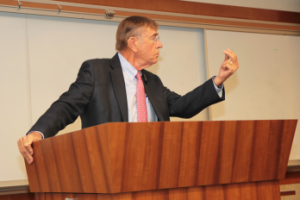
The National Security State: The End of Separation of Powers
Retired Professor of Law from Duke University Michael Tigar joins hosts to talk about his recent article The National Security State: The End of Separation of Powers published in the latest Monthly Review Magazine. Michael has explained how the Executive branch of government has come to dominate both the Judicial and Legislative branches of the United States government. Attorney Michael Tigar has been working on social issues for many years, his books include Law and The Rise of Capitalism, Fighting Injustice, and Thinking About Terrorism: The Threat To Civil Liberties In Times of National Emergency.
Attorney Michael Tigar:
- The basic principle of constitutional government that is established in our Constitution is that the actions of the legislative and executive branches, particularly the executive branch, are always reviewable by independently appointed judges and that the legality of whatever the executive branch does harms any protected interest, citizen or otherwise ought to be reviewable in the courts of the United States.
- The main thing about this is the harm to the judicial branch is in a real sense a self inflicted wound.
- That is to say judges confronted with assertions of executive power have proven inadequate to the task of restraining exercises of executive power
- We recall the massive illegality of the Japanese relocation at the beginning of the Second World War.
- It is now been shown that the premise upon which that relocation took place confining Japanese-Americans in concentration camps was false.
- At the time the Constitution was being debated Patrick Henry opposed the adoption of the Constitution on the ground that the ideal that independent judiciary could act as an effective check upon the exercise of executive power particularly military power was bound to be dis-proven in history.
- Law is legal ideology. That is to say its erected around social relations. In every time of recorded history there is a sense in which the formal guarantees that rules of law make about individual rights are simply lies the regime tells the people in order to sustain itself.
- That was the burden of book I wrote called Law and The Rise of Capitalism.
- The ideal that you rally people to the cause of social change by promising them liberty is also not new.
- The Cherokee people of Georgia read the Constitution and they said Aha, the Constitution guarantees that any group or individual can exercise certain social rights.
- So they drafted a Constitution for their nation and set up institutions then they brought suit against the state of Georgia to enforce these rights, that the letter of the American Constitution guaranteed that.
- What did Chief Justice Marshall say? What a minute, these are inferior and subject people. When the Constitution gives the right to all people, persons, citizens whatever, to bring lawsuits under Article 3 and to bring them to us, it wasn’t talking about these people.
- Michael Ratner you and others, courageous lawyers who have been struggling to get reviewablility of unlawful executive action should not give up the fight.
- The kinds of effort you make deserve support and turn out in historic context to be important.
- Historically the role of lawyers has been to articulate people’s claims for justice.
- What Edward Snowden and Julian Assange have done is reveal to the world fundamental defects in the way that the American political society has been operating and yet rather than saying thank you in some form of another, the government is hell-bent on prosecuting them.
Guest – Michael Tigar, a research professor of law. He holds expertise in Constitutional Law; Supreme Court; French legal system; criminal law and procedure; human rights. He is fluent in French. Tigar represented Terry Nichols in the Oklahoma City bombing trial. One of the most renowned lawyers in the country today, he has argued seven cases before the U.S. Supreme Court and more than 100 appellate cases. Tigar has written extensively about litigation, aspects of trial practice, criminal law, the death penalty, and the role of the criminal defense lawyer. His books include Fighting Injustice (ABA, 2002); Federal Appeals: Jurisdiction and Practice; and Examining Witnesses. In addition, he has written several plays about famous trials. Throughout his career, Tigar has been active in pro bono cases, the American Bar Association, continuing legal education programs, and international human rights. During the apartheid period, he went to South Africa to train black lawyers. Prior to joining AU, Tigar served as a professor at the University of Texas Law School.
—————————————————————————————–

Please help support Law and Disorder, the show is now a sponsored project of Fractured Atlas, a non-profit arts service organization. Contributions for the charitable purposes of Law and Disorder must be made payable to Fractured Atlas only and are tax-deductible to the extent permitted by law.



























